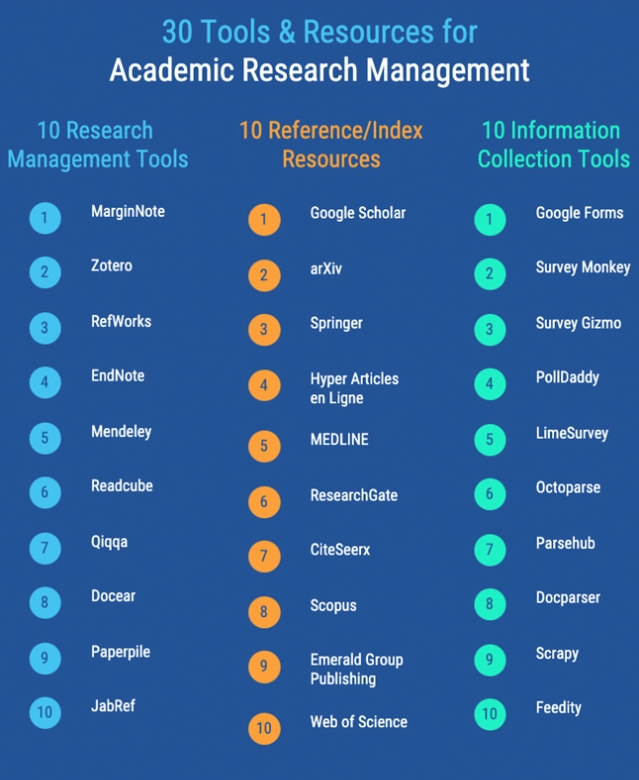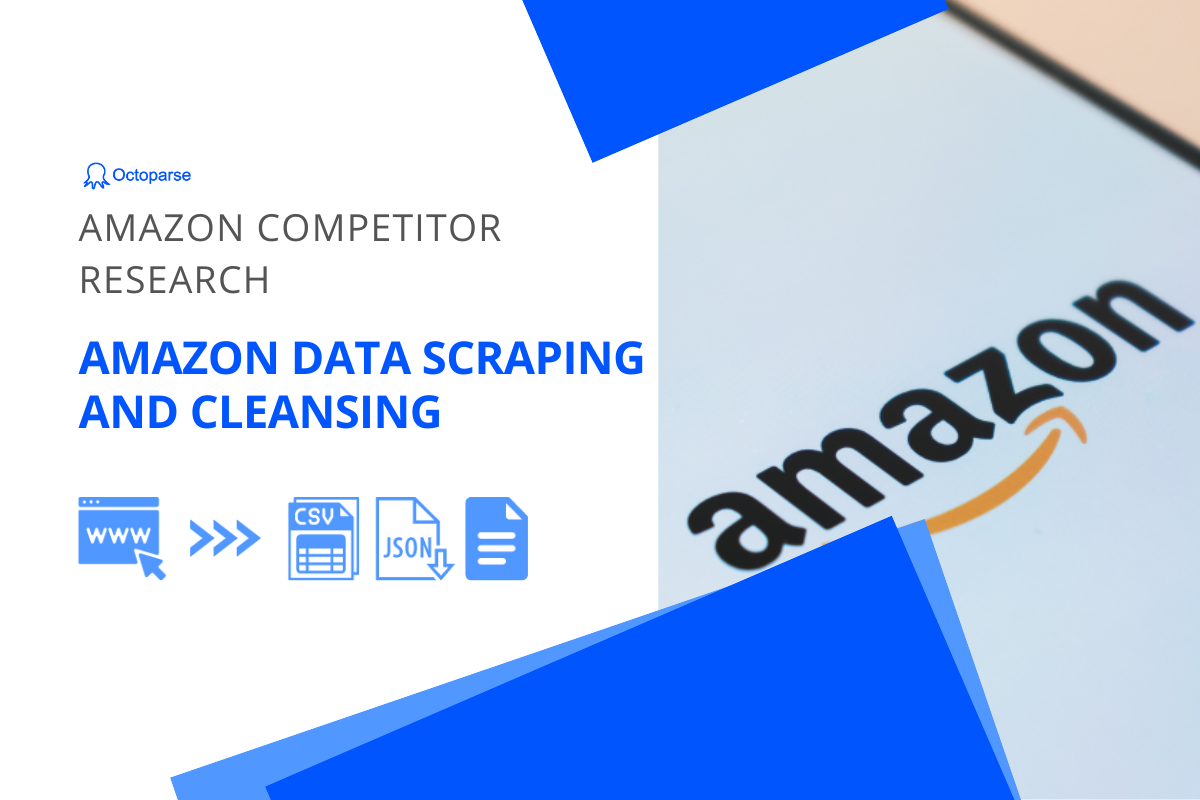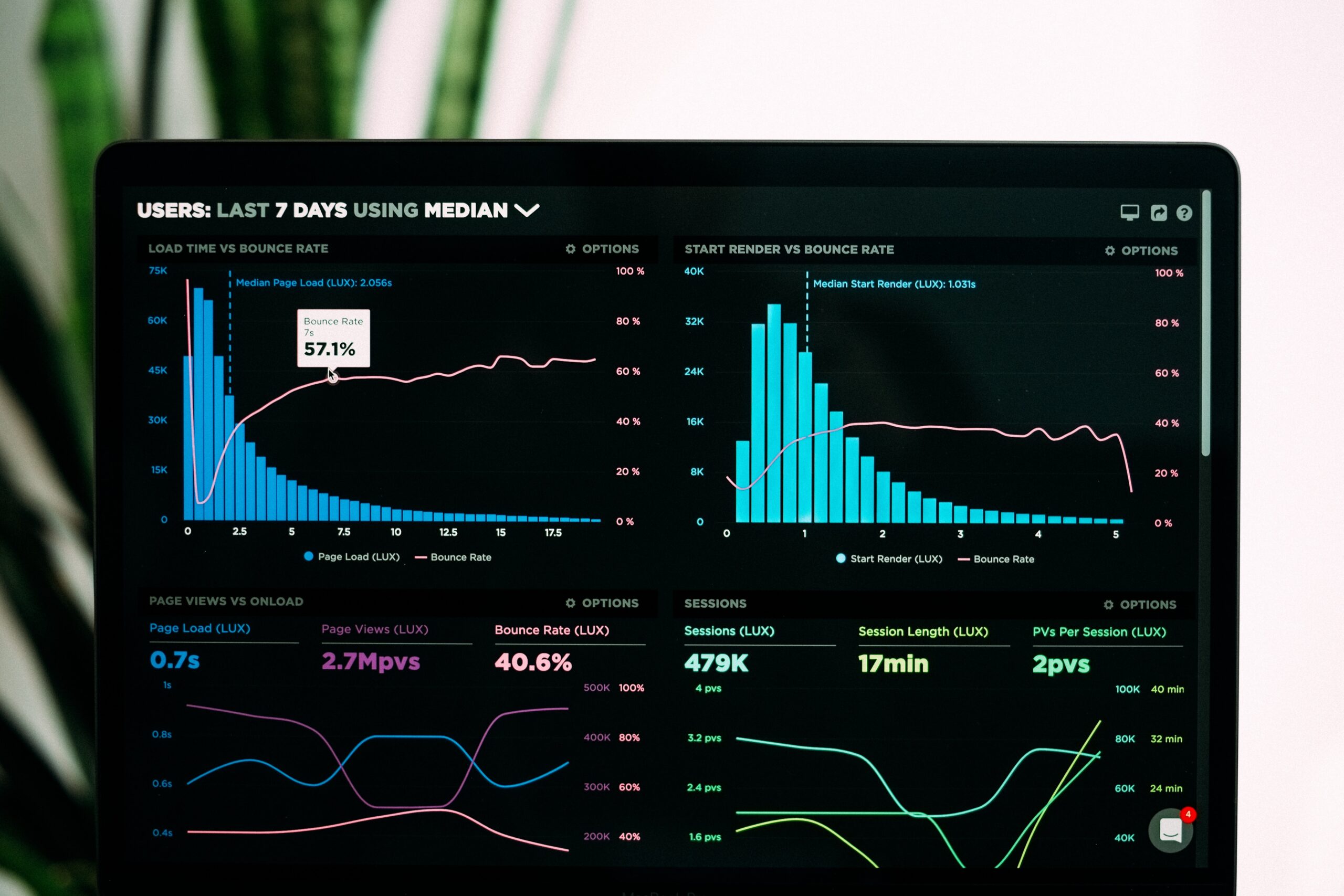Academic research requires access to a wide range of tools and resources that streamline the process of managing, collecting, and organizing data. Whether you’re a student, professor, or researcher, the right tools can significantly enhance your productivity and the quality of your work.
In this article, we’ve curated 30 essential academic research tools across various categories, from research management and reference resources to information collection and data scraping tools. These tools are designed to help you organize your research, improve your workflow, and find the right resources for your academic projects.

Looking for data resources for your research? Find it in 70 Amazing Free Data Resources you should know, covering government, crime, health, finances, social media, journalism, real estate, etc.
10 Research Management Tools
1. MarginNote
License: Commercial
MarginNote is a powerful reading tool for learners. Whether you are a student, a teacher, a researcher, a lawyer, or someone with a curious mind to learn, MarginNote can help you quickly organize, study and manage large volumes of PDFs and EPUBs. All-in-one learning app enables you to highlight PDF and EPUB, take notes, create the mind map, review flashcards, and saves you from switching endlessly between different Apps. It is available on Mac, iPad, and iPhone.
2. Zotero
License: Free
Zotero is a free, easy-to-use tool to help you collect, organize, cite, and share research. It is available for Mac, Windows, and Linux. It supports managing bibliographic data and related research materials (such as PDF files). Notable features include web browser integration, online syncing, generation of in-text citations, footnotes, and bibliographies, as well as integration with the word processors Microsoft Word and LibreOffice Writer.
3. RefWorks
License: Free
RefWorks is a web-based commercial reference management software package. Users’ reference databases are stored online, allowing them to be accessed and updated from any computer with an internet connection. Institutional licenses allow universities to subscribe to RefWorks on behalf of all their students, faculty, and staff. Individual licenses are also available. The software enables linking from a user’s RefWorks account to electronic editions of journals to which the institution’s library subscribes.
4. EndNote
License: Commercial
EndNote is the industry standard software tool for publishing and managing bibliographies, citations, and references on the Windows and Macintosh desktop. EndNote X9 is the reference management software that not only frees you from the tedious work of manually collecting and curating your research materials and formatting bibliographies, but also gives you greater ease and control in coordinating with your colleagues.
5. Mendeley
License: Free
Mendeley Desktop is free academic software (Windows, Mac, Linux) for organizing and sharing research papers and generating bibliographies with 1GB of free online storage to automatically back up and synchronize your library across desktop, web, and mobile.
6. Readcube
License: Commercial
ReadCube is a desktop and browser-based program for managing, annotating, and accessing academic research articles. It can sync your entire library including notes, lists, annotations, and even highlights across all of your devices including your desktop (Mac/PC), mobile devices (iOS/Android/Kindle), or even through the Web.
7. Qiqqa
License: Free
Qiqqa is a free research and reference manager. Its free version supports supercharged PDF management, annotation reports, expedition, Ad-supported, and 2GB free online storage.
8. Docear
License: Free
Docear offers a single-section user interface that allows the most comprehensive organization of your literature; a literature suite concept that combines several tools in a single application (pdf management, reference management, mind mapping, …); A recommender system that helps you to discover new literature: Docear recommends papers which are free, in full-text, instantly to download, and tailored to your information needs.
9. Paperpile
License: Commercial
Paperpile is a web-based commercial reference management software, with a special emphasis on integration with Google Docs and Google Scholar. Parts of Paperpile are implemented as a Google Chrome browser extension
10. JabRef
License: Free
JabRef is an open-source bibliography reference manager. The native file format used by JabRef is BibTeX, the standard LaTeX bibliography format. JabRef is a desktop application that runs on the Java VM (version 8), and works equally well on Windows, Linux, and Mac OS X. Entries can be searched in external databases and BibTeX entries can be fetched from there. Example sources include arXiv, CiteseerX, Google Scholar, Medline, GVK, IEEEXplore, and Springer.
10 Reference/Index Resources
1. Google Scholar
Google Scholar is a freely accessible web search engine that indexes the full text or metadata of scholarly literature across an array of publishing formats and disciplines. It includes most peer-reviewed online academic journals and books, conference papers, theses and dissertations, preprints, abstracts, technical reports, and other scholarly literature, including court opinions and patents. You can extract these academic data easily by scraping Google Scholar search results.
2. arXiv
arXiv (pronounced “archive”) is a repository of electronic preprints (known as e-prints) approved for publication after moderation, that consists of scientific papers in the fields of mathematics, physics, astronomy, electrical engineering, computer science, quantitative biology, statistics, and quantitative finance, which can be accessed online. In many fields of mathematics and physics, almost all scientific papers are self-archived on the arXiv repository.
3. Springer
Springer Science+Business Media or Springer, part of Springer Nature, has published more than 2,900 journals and 290,000 books, which covers science, humanities, technical and medical, etc.
4. Hyper Articles en Ligne
Hyper Articles en Ligne (HAL) is an open archive where authors can deposit scholarly documents from all academic fields, run by the Centre pour la Communication Scientifique direct, which is part of the French National Centre for Scientific Research. An uploaded document does not need to have been published or even to be intended for publication. It may be posted to HAL as long as its scientific content justifies it.
5. MEDLINE
MEDLINE (Medical Literature Analysis and Retrieval System Online, or MEDLARS Online) is a bibliographic database of life sciences and biomedical information. It includes bibliographic information for articles from academic journals covering medicine, nursing, pharmacy, dentistry, veterinary medicine, and health care. MEDLINE also covers much of the literature in biology and biochemistry, as well as fields such as molecular evolution.
Compiled by the United States National Library of Medicine (NLM), MEDLINE is freely available on the Internet and searchable via PubMed and NLM’s National Center for Biotechnology Information’s Entrez system.
6. ResearchGate
ResearchGate is a social networking site for scientists and researchers[3] to share papers, ask and answer questions, and find collaborators.[4] According to a study by Nature and an article in Times Higher Education, it is the largest academic social network in terms of active users.
7. CiteSeerx
Owner: Pennsylvania State University
CiteSeerx ( CiteSeer ) is a public search engine and digital library for scientific and academic papers, primarily in the fields of computer and information science. Many consider it to be the first academic paper search engine and the first automated citation indexing system. CiteSeer holds a United States patent # 6289342, titled “Autonomous citation indexing and literature browsing using citation context”.
8. Scopus
Owner: Elsevier
Scopus is the world’s largest abstract and citation database of peer-reviewed research literature. With over 22,000 titles from more than 5,000 international publishers. You can use this free author lookup to search for any author; or, use the Author Feedback Wizard to verify your Scopus Author Profile.
9. Emerald Group Publishing
Emerald Publishing was founded in 1967, and now manages a portfolio of nearly 300 journals, more than 2,500 books, and over 1,500 teaching cases, covering the fields of management, business, education, library studies, health care, and engineering.
10. Web of Science
Owner: Clarivate Analytics (United States)
Web of Science (previously known as Web of Knowledge) is an online subscription-based scientific citation indexing service originally produced by the Institute for Scientific Information (ISI)
10 Information Collection Tools
This part divides the 10 information collection tools into 5 information survey tools and 5 data collection tools for further use.
5 Information Survey Tools
1. Google Forms
Google Forms is a simple option for you if you already have a Google account. It supports menu search, a shuffle of questions for randomized order, limiting responses to once per person, custom themes, automatically generating answer suggestions when creating forms, and an “Upload file” option for users answering to share content through.
Moreover, the response can be synced in Google Drive, and users can request file uploads from individuals outside their respective companies, with the storage cap initially set at 1 GB.
2. Survey Monkey
Survey Monkey is quite a well-known name in the field but is also costing. It is a great choice for you if you want an easy user interface for basic surveys, as its free plan supports unlimited surveys, however, each survey is limited to 10 questions.
3. Survey Gizmo
SurveyGizmo can be customized to meet a wide range of data-collection demands. The free version has up to 25 question types, letting you write a survey that caters to specific needs. It also offers nearly 100 different question types that can all be customized to the user’s liking.
4. PollDaddy
PollDaddy is online survey software that allows users to embed surveys on their website or invite respondents via email. Its free version supports unlimited polls, 19 types of questions, and even adding images, videos, and content from YouTube, Flickr, Google Maps, and more.
5. LimeSurvey
LimeSurvey is an open-source survey software as a professional SaaS solution or as a self-hosted Community Edition. LimeSurvey’s professional free version provides 25 responses/month with an unlimited number of surveys, unlimited administrators, and 10 MB of upload storage.
5 Web Data Collection Tools
1. Octoparse
Octoparse is the most easy-to-use web scraping tool for people without a prior tech background. It is widely used among online sellers, marketers, researchers, and data analysts. With its intuitive interface, you can scrape web data within points and clicks. If you are looking for a one-stop data solution, Octoparse also provides a web data service. Or you can simply follow the Octoparse user guide to scrape website data easily for free. It also provides ready-to-use web scraping templates to extract data from Amazon, eBay, Twitter, BestBuy, etc.
https://www.octoparse.com/template/email-social-media-scraper
Its free version offers unlimited pages per crawl, 10 crawlers, and up to 10,000 records per export. If the data collected is over 10,000, then you can pay $5.9 to export all the data. If you need to track the dynamic data in real time, you may want to use Octoparse’s premium feature: scheduled cloud extraction. Read its customer stories to get an idea of how web scraping enhances businesses.
Turn website data into structured Excel, CSV, Google Sheets, and your database directly.
Scrape data easily with auto-detecting functions, no coding skills are required.
Preset scraping templates for hot websites to get data in clicks.
Never get blocked with IP proxies and advanced API.
Cloud service to schedule data scraping at any time you want.
2. Parsehub
Parsehub is another non-programmer-friendly desktop software for web scraping, which is available to various systems such as Windows, Mac OS X, and Linux. Its free version offers 200 pages per crawl, 5 public projects, and 14 days for data retention.
3. Docparser
Docparser converts PDF documents into structured and easy-to-handle data, which allows you to extract specific data fields from PDFs and scanned documents, convert PDF to text, PDF to JSON, PDF to XML, convert PDF tables into CSV or Excel, etc. Its starting price is $19, which includes 100 parsing credits.
4. Scrapy
Scrapy is an open-source and collaborative framework for extracting the data you need from websites. In a fast, simple, yet extensible way.
5. Feedity
Feedity automagically extracts relevant content & data from public web pages to create auto-updating RSS feeds. Instantly convert online news, articles, discussion forums, reviews, jobs, events, products, blogs, press releases, social media posts, or any other Web content into subscribable or publishable notifications. The starter version offers 20 feeds and 6 hours update interval, with a cost of $9 per month.
Final Thoughts
In conclusion, having the right set of tools and resources can make a world of difference in academic research. The 30 tools we’ve highlighted in this article cover essential areas such as research management, data collection, and referencing, all designed to enhance your productivity and streamline your workflow. By utilizing these resources, you can save time, improve the accuracy of your research, and access valuable data more efficiently.
Explore and integrate the tools that best suit your needs, and watch your academic research process become more organized and effective. If you’re looking for a powerful tool to assist in data scraping and automating research tasks, Octoparse is a great solution to consider.




